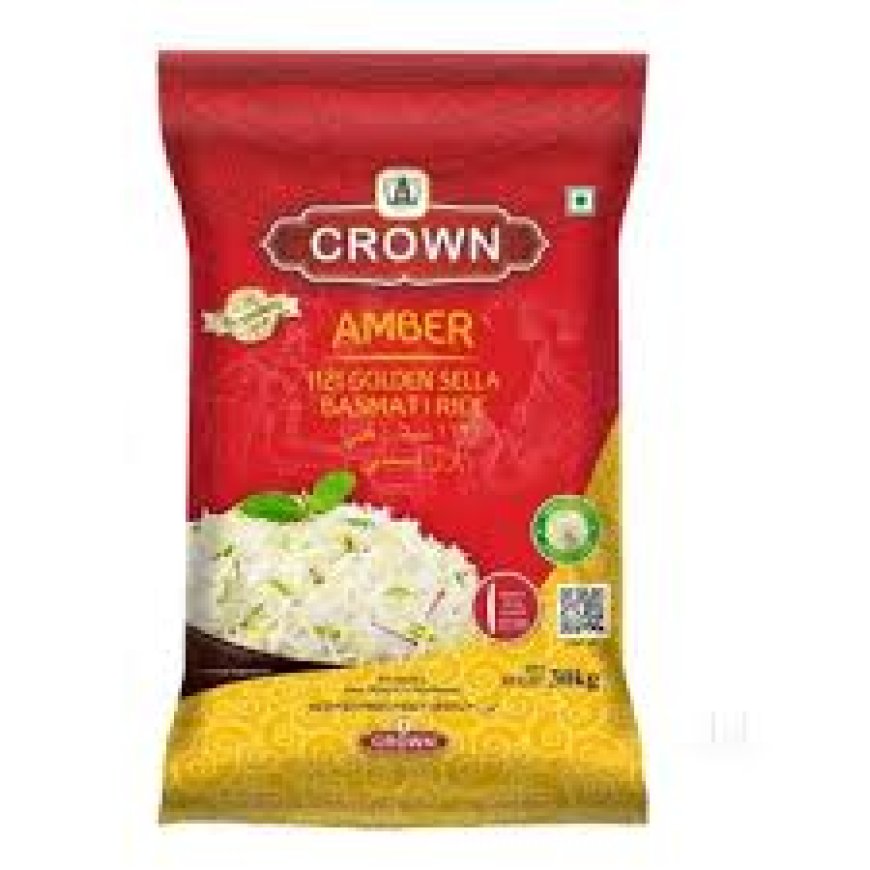Basmati Rice Wholesale: Top Deals for Bulk Buyers
This article explores everything you need to know about basmati rice wholesale, including its benefits, sourcing tips, and what to look for in a reliable supplier.

Basmati rice is a staple in many cuisines around the world, known for its long grains, unique aroma, and fluffy texture. Whether it’s served in biryanis, pilafs, or as a simple side dish, basmati rice adds a touch of elegance to any meal. For restaurants, caterers, retailers, and distributors, buying rice in large quantities is not only economical but essential for meeting customer demand. This article explores everything you need to know about basmati rice wholesale, including its benefits, sourcing tips, and what to look for in a reliable supplier.
Why Buy Basmati Rice Wholesale?
Buying basmati rice wholesale offers several advantages for businesses and bulk consumers:
-
Cost Savings: Purchasing in bulk reduces the per-unit price, which can significantly improve profit margins, especially for restaurants and retailers.
-
Consistent Supply: Wholesale orders ensure a steady and reliable stock, preventing disruptions in food service or retail operations.
-
Customization: Many wholesale suppliers offer custom packaging and labeling, helping businesses build their own brand presence.
-
Variety Access: Wholesale buyers can choose from a range of basmati varieties such as traditional basmati, 1121 extra-long grain, golden sella, steamed, and more.
Types of Basmati Rice Available in Wholesale Markets
When exploring basmati rice wholesale options, understanding the types available can help in making an informed choice:
-
Traditional Basmati: Aged for better flavor and texture, ideal for premium cooking.
-
1121 Basmati: Known for its extra-long grains, perfect for biryani and special dishes.
-
Golden Sella Basmati: Parboiled rice with a golden hue and firmer texture.
-
Steamed Basmati: Less sticky and has a fluffier appearance after cooking.
-
Broken Basmati: Economical choice used for bulk cooking or processing industries.
Each type serves a unique culinary purpose, and bulk buyers often stock more than one variety depending on customer preferences.
Where to Find the Best Basmati Rice Wholesale Suppliers
India is the leading producer and exporter of basmati rice, and several regions are hubs for wholesale trading, including Punjab, Haryana, Uttar Pradesh, and Delhi. Some major cities like Delhi, Karnal, and Amritsar house reputed suppliers that deal with domestic and international bulk buyers.
When sourcing basmati rice wholesale, consider the following supplier options:
-
Rice Mills: Directly buying from mills ensures freshness, better prices, and less middleman involvement.
-
Exporters: For international buyers, working with exporters who understand global regulations and shipping logistics is essential.
-
Agri Markets and Mandis: In India, wholesale markets offer a wide variety of basmati rice at competitive rates.
-
Online B2B Platforms: Websites like IndiaMART, TradeIndia, and Alibaba list verified wholesalers and manufacturers.
Choosing a Reliable Wholesale Supplier
Selecting the right supplier for basmati rice wholesale is crucial for ensuring consistent quality and service. Here’s what to evaluate:
-
Quality Certifications: Look for suppliers with ISO, FSSAI, and APEDA certifications.
-
Aging of Rice: Aged rice (minimum 1–2 years) offers better taste and cooking quality.
-
Packaging Standards: Ensure hygienic and tamper-proof packaging that preserves freshness.
-
Logistics and Delivery: Reliable transportation and timely delivery are vital for businesses with regular requirements.
-
Reputation: Choose suppliers with positive reviews and a strong market presence.
Requesting samples before placing a bulk order can also help assess grain quality, aroma, and cooking performance.
Pricing Factors in Basmati Rice Wholesale
The price of basmati rice in the wholesale market can vary depending on several factors:
-
Grain length and variety
-
Aging and processing method
-
Harvest season and crop yield
-
Packaging and customization needs
-
Export duties and shipping costs (for international buyers)
Staying updated on market trends and seasonal price fluctuations can help buyers make smart purchasing decisions.
Benefits for Retailers and Food Businesses
Retailers and food businesses can gain a competitive edge by choosing the right basmati rice wholesale partner:
-
Private Labeling: Many wholesalers offer white-labeling services for retailers to build their own brand.
-
Exclusive Varieties: Access to unique or premium rice types that aren’t commonly available in local markets.
-
Volume Discounts: Larger orders often come with better deals and long-term supplier relationships.
Whether running a grocery store, restaurant chain, or catering service, having access to quality basmati rice in bulk supports business growth and customer satisfaction.
Conclusion
Sourcing basmati rice wholesale is a smart and strategic move for businesses that depend on this premium grain for their daily operations. With the right supplier, buyers can secure high-quality rice at competitive prices, ensure a consistent supply, and even build their own brand presence. From traditional basmati to modern parboiled varieties, the wholesale market offers ample choice for every requirement. Whether you are in the food service industry or retail sector, choosing the right basmati rice wholesale partner is key to success in a competitive market.











































































